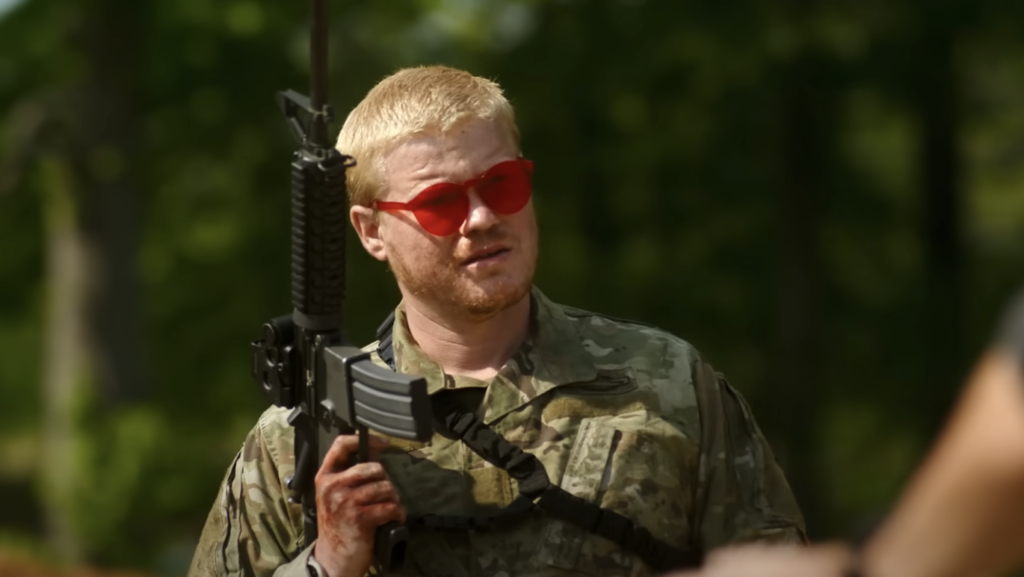A Nation on the Brink: Alex Garland’s “Civil War” Exposes the Moral Gray Areas of a Fractured America
Alex Garland’s “Civil War” isn’t your standard war epic filled with sweeping battle scenes and clear-cut heroes. Instead, it delivers a chilling and unflinching portrayal of a fractured America teetering on the precipice of a second civil war. The film doesn’t transport us to a distant past or a far-off dystopia; it’s set in a disturbingly believable near future, where societal chasms have become uncomfortably wide.

Through a Warped Lens: Media Manipulation Fuels the Fire
“Civil War” follows a team of journalists embedded with a militia group. We witness the escalating violence and the disturbing manipulation of information firsthand through their eyes. Garland paints a masterful picture of how media outlets cherry-pick footage and craft narratives specifically designed to exacerbate existing societal divisions. A particularly unsettling scene depicts the journalists being pressured to manipulate raw footage in order to fit a pre-determined narrative, purposefully blurring the lines between journalism and blatant propaganda.
The Unseen Scars: War’s Brutal Toll on Humanity
The film doesn’t shy away from depicting the brutal realities of war. We are forced to confront the physical and psychological trauma inflicted on both soldiers and civilians caught in the crossfire. Garland deliberately avoids glamorizing violence, instead choosing to focus on the desperation, fear, and utter senselessness of armed conflict. One scene depicts a young soldier haunted by the atrocities he’s been forced to commit, serving as a powerful reminder of the human cost of war, a cost often overshadowed by the sanitized headlines.
The Quest for Truth in a Moral Maze
“Civil War” is not a film that offers easy answers. There are no clear-cut heroes or villains; the characters are morally complex, entangled in a web of conflicting ideologies and loyalties. The journalists themselves struggle with their own biases and grapple with the ethical dilemmas inherent in reporting from a warzone. The film forces the audience to confront uncomfortable questions about neutrality and the media’s responsibility in a world increasingly defined by a dangerous “us vs. them” mentality.
A Mirror to Our Times: A Cautionary Tale
While set in a near future, “Civil War” feels frighteningly relevant to our current world. The film serves as a stark warning about the dangers of social and political polarization, and the ease with which misinformation can be weaponized to sow discord. It’s a film that lingers long after the credits roll, prompting viewers to reflect on their own media consumption habits, their individual responsibility, and the fragility of peace in a nation teetering on the brink. “Civil War” may not be a comfortable watch, but it’s a necessary one. By forcing us to confront the human cost of ideological warfare, Garland compels us to seek understanding and strive for a more unified future before the divisions tearing at the fabric of society become truly irreparable.




















